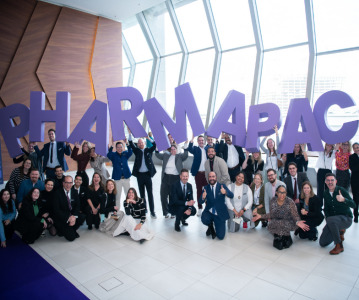Revamped EU drug regulations increase accessibility but limit innovation?

The European Union’s pharmaceutical industry could face a serious change in operations after Brussels published a proposal for the revamping of certain laws governing the industry.
As one of the biggest modernisation of these laws in 20 years, the market will see a shift in access across European countries to new treatments and generic drugs. The changes should serve to reduce the difference in accessibility to certain medications, and the difference in prices that can be seen in drugs.
One of these amendments includes reducing the length of time a drugmaker can claim exclusivity over a generic from 10 years to eight. However, companies can still earn two further years of protection by launching any new medicine in all 27 member states within the first two years.
EU Health Commissioner Stella Kyriakides stated that the new system "would provide access to new medicines to around 70 million more citizens compared to today".
The EU Health Commission states the overhaul will create a single market for medicines in Europe, shifting the focus on to better provision of healthcare rather than playing to the pharmaceutical industry with overly generous incentives.
Pharmaceutical companies have voiced concerns over the reforms, convinced that it will curb innovation by removing the competitive edge, rather than increase it.
CEO of Novo Nordisk, Lars Fruergaard Jørgensen stated on Wednesday that "the proposals are poison for innovation and competitiveness in Europe."
GSK affirmed that the EU must "regulate for growth and competitiveness" because companies "have choices on where our capital and resources are focused".
The aim of the alterations is mostly to ensure that drug shortages, such as we’ve seen in the last few months, will not occur again, with a failsafe meaning that companies will have to disclose any issues with the supply chain earlier on so that contingencies can be made. The regulations also hope to make the regulators int eh Eu more efficient and improve the speed at which new drugs can be approved for market.
Related News
-
News A Day in the Life of Oncology Start-Up Co-Founder & CEO
This Women's month we are highlighting stories of women in the pharma industry (building on what we do every month to support women), so for the Day in the Life of we are speaking to Sharon Cunningham who is the Co-founder and CEO of Shorla On... -
News Women in Pharma: Manufacturing personal and team success
Our monthly Women in Pharma series highlights the influential lives and works of impactful women working across the pharmaceutical industry, and how the industry can work towards making the healthcare industry and workplace more equitable and inclusive... -
News A Day in the Life of a Head of Market Insights in med devices
The latest interview in the Day in the Life of Series is with Alper Hulusi, Head of Market Insights for ClariMed. Hulusi also works to try to get to know people, this time from the other side of pharma – the people that will be using the the... -
News CPHI Podcast Series: Packaging expert perspectives at Pharmapack 2025
This month's podcast episode sounds a little different, covering the latest event in Paris – Pharmapack 2025. Digital Editor Lucy Chard speaks to several experts direct from the floor of the show, bringing you right in on the action.&nbs... -
News Vertex Pharmaceuticals stock jumps as FDA approves non-opioid painkiller
UK-based Vertex Pharmaceuticals saw their stock shares soar as the US FDA signed off on the non-opioid painkiller Journavx, also known as suzetrigine, for patients with moderate to severe acute pain, caused by surgery, accidents, or injuries. -
News The 2025 Pharmapack Awards: recognising innovation and patient centricity
This year in Paris the Pharmapack Awards recognised the achievements across categories in the industry, aswell as including some new categories to highlight exceptional work and people. -
News Pharmapack 2025: From the Floor in Paris
Pharmpack gears up for another week in Paris at the Porte De Versailles. The two-day show taking place on the 22–23 January, will cover contract packaging, device innovation, and sustainability among other topics. -
News Visibility, Integration, and Opportunity with CPOs: A Pharmapack Interview
At Pharmapack 2025 in Paris the informative content tracks this year will feature a Contract Packaging track. A critically important topic for those working in the field, which speaker Alexander Schäfer from Sharp Services discusses in the fo...
Recently Visited
Position your company at the heart of the global Pharma industry with a CPHI Online membership
-
Your products and solutions visible to thousands of visitors within the largest Pharma marketplace
-
Generate high-quality, engaged leads for your business, all year round
-
Promote your business as the industry’s thought-leader by hosting your reports, brochures and videos within your profile
-
Your company’s profile boosted at all participating CPHI events
-
An easy-to-use platform with a detailed dashboard showing your leads and performance







